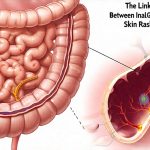Gut inflammation is becoming increasingly prevalent in modern society, often lurking beneath the surface of various health issues. It’s not always obvious; symptoms can range from bloating and fatigue to skin problems and even mood swings. This widespread issue stems from a combination of factors, including diet, stress, lifestyle, and environmental toxins. Many conventional diets contribute to inflammation rather than helping resolve it, filled with processed foods, sugar, and unhealthy fats. However, the good news is that dietary changes can profoundly impact gut health and significantly reduce inflammation, paving the way for improved overall wellbeing. Understanding how food interacts with our gut microbiome is the first step toward healing.
Our digestive system isn’t just about breaking down food; it’s a complex ecosystem teeming with trillions of microorganisms – bacteria, viruses, fungi, and more – collectively known as the gut microbiome. When this ecosystem is balanced, it supports digestion, immunity, and even mental health. But when inflammation arises, that balance gets disrupted, often leading to leaky gut syndrome where the intestinal lining becomes permeable allowing undigested food particles, toxins, and bacteria to enter the bloodstream. This triggers an immune response and further exacerbates inflammation.
Understanding Inflammation & The Gut
Inflammation isn’t inherently bad; it’s a natural process our bodies use to heal. Acute inflammation is short-term and crucial for recovery. However, chronic inflammation – persistent, low-grade inflammation – is where problems arise. It’s linked to numerous health conditions, including autoimmune diseases, heart disease, type 2 diabetes, and even certain cancers. The gut plays a central role in systemic inflammation because of its direct connection to the immune system. Approximately 70-80% of our immune cells reside in the gut, making it a key battleground for inflammatory responses.
A diet high in processed foods, refined sugars, and unhealthy fats directly fuels chronic inflammation. These foods disrupt the gut microbiome, promoting the growth of harmful bacteria and reducing beneficial ones. Conversely, a diet rich in whole, unprocessed foods provides the nutrients necessary to nourish the beneficial bacteria and reduce inflammation. Identifying food sensitivities is also crucial; what inflames one person’s gut might not affect another.
Dietary Strategies for Healing Gut Inflammation
The cornerstone of healing gut inflammation lies in adopting an anti-inflammatory diet. This doesn’t mean eliminating entire food groups (unless you have specific allergies or intolerances). It means prioritizing whole, unprocessed foods and minimizing inflammatory triggers. Focus on incorporating foods rich in nutrients that support a healthy gut microbiome and reduce inflammation throughout the body. Think vibrant colors – fruits and vegetables are packed with antioxidants which combat oxidative stress and inflammation.
Emphasis should be placed on fiber-rich foods like vegetables, fruits, legumes, and whole grains. Fiber feeds beneficial bacteria in the gut, promoting diversity and resilience of the microbiome. Healthy fats from sources like avocados, olive oil, nuts, and seeds provide essential nutrients and also help reduce inflammation. Protein is vital for repair and rebuilding tissues but should be sourced from lean options such as fish, poultry, or plant-based alternatives. Water intake is paramount too; staying adequately hydrated supports digestion and helps flush out toxins.
Foods to Embrace
Certain foods are particularly beneficial for gut healing. Fermented foods like yogurt (with live cultures), kefir, sauerkraut, kimchi, and kombucha introduce probiotics – live microorganisms that replenish the gut microbiome. Bone broth, rich in collagen and amino acids, can help repair the intestinal lining. Omega-3 fatty acids found in fatty fish (salmon, mackerel, sardines) have potent anti-inflammatory properties. Turmeric, containing curcumin, is another powerful anti-inflammatory spice. Ginger, known for its digestive benefits, also helps reduce inflammation. Green tea provides antioxidants and supports gut health.
Beyond the specific foods, how you prepare your food matters too. Opt for steaming, baking, or grilling over frying. Avoid excessive heat which can damage nutrients and create harmful compounds. Proper chewing is also vital; it breaks down food into smaller particles making digestion easier and reducing stress on the gut. Consider mindful eating practices – paying attention to your body’s hunger and fullness cues and savoring each bite.
Foods to Limit or Avoid
Identifying and eliminating inflammatory foods is just as crucial. The most common culprits include processed foods, refined sugars (found in sweets, sodas, and many packaged foods), unhealthy fats (trans fats and excessive saturated fats), artificial sweeteners, and alcohol. Gluten and dairy can be problematic for some individuals, even without a diagnosed allergy or intolerance. Nightshade vegetables (tomatoes, peppers, eggplant, potatoes) may trigger inflammation in sensitive individuals.
It’s important to note that everyone reacts differently. An elimination diet – temporarily removing potential inflammatory foods and then reintroducing them one by one while monitoring symptoms – can help identify your individual triggers. Keep a food diary to track what you eat and how it makes you feel. This will provide valuable insights into which foods are contributing to inflammation and should be limited or avoided.
Beyond Diet: Lifestyle Factors
While diet is foundational, gut health isn’t solely determined by what we eat. Stress management is critical; chronic stress disrupts the gut microbiome and increases inflammation. Incorporate relaxation techniques like yoga, meditation, deep breathing exercises, or spending time in nature. Adequate sleep (7-9 hours per night) allows the body to repair and regenerate, including the gut lining. Regular physical activity improves circulation, reduces stress, and supports a healthy gut microbiome. Minimizing exposure to environmental toxins – pesticides, herbicides, and chemicals in household products – can also protect your gut health.
Ultimately, healing gut inflammation is a holistic process that requires mindful attention to both diet and lifestyle. It’s not about quick fixes or restrictive diets; it’s about cultivating a sustainable approach to wellbeing that supports the intricate ecosystem within our digestive system. By prioritizing whole foods, reducing inflammatory triggers, and managing stress, we can restore balance to the gut and unlock lasting health benefits.


















